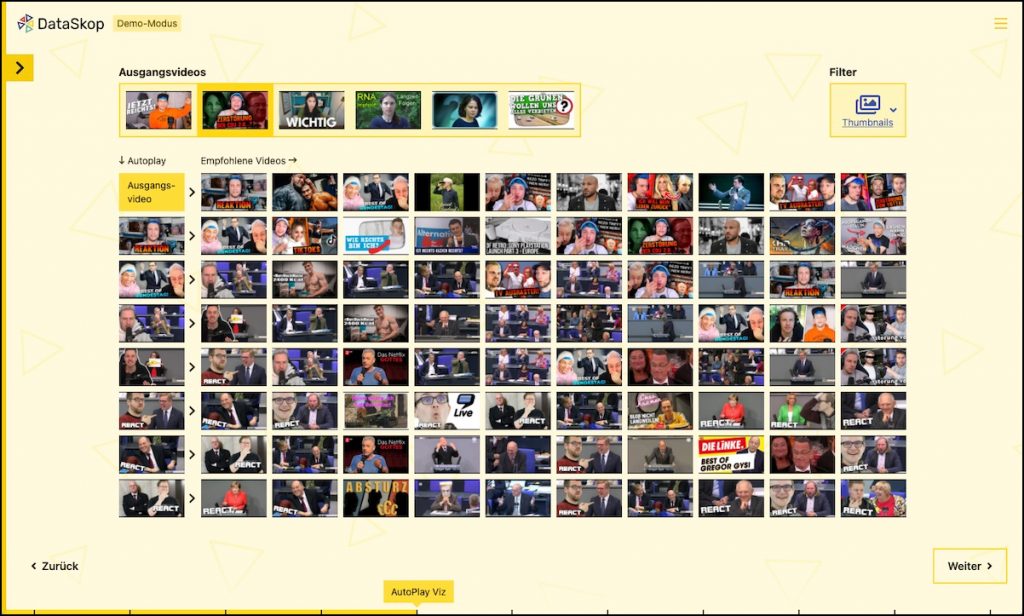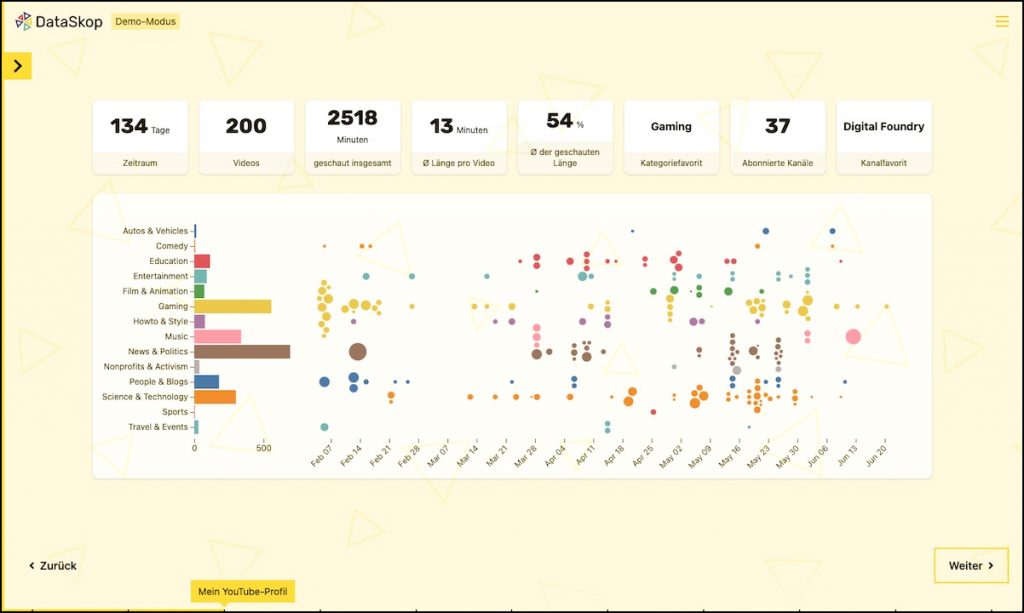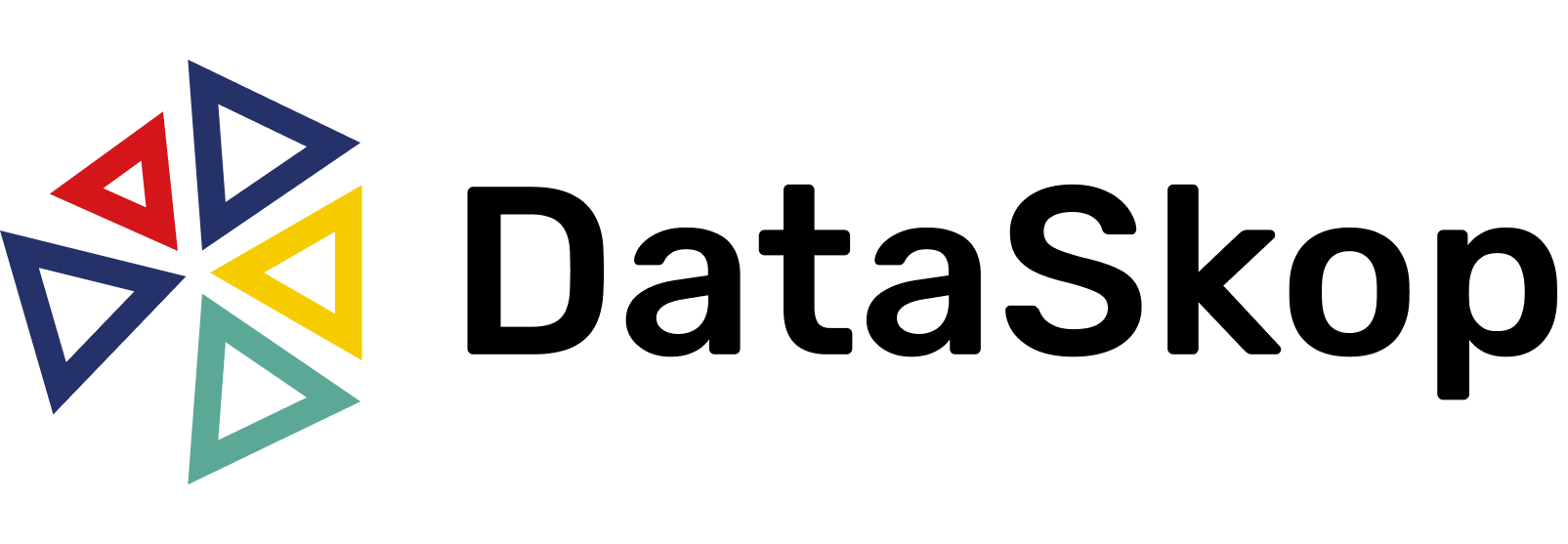What is DataSkop?
DataSkop is a data donation project investigating platforms. In late 2021, a pilot project was launched to examine which personalized recommendations and search results the YouTube system delivered around topics related to the German federal election. For six weeks, from 15 July to 25 August 2021, users could donate their data. A report is available here. In January 2023, a second campaign was launched, focusing on TikTok’s recommender system. Sign up to the AlgorithmWatch newsletter to receive updates on the latest developments (available in English).
DataSkop also offers learning scenarios for in-school and out-of-school educational settings.

Why data donations?
Data donations can help shed a light on opaque social media algorithms and automated decision systems. Prominent examples are the data donation infrastructure Mozilla Rally [link] or Citizen Browser—created by The Markup, a US non-profit journalism outfit—that takes a close look at how Facebook works. AlgorithmWatch—one of the initiators of DataSkop—created OpenSchufa (2018) and Monitoring Instagram (2020-2021), two projects also using data donations to explore algorithms. Learn more about data donations and how they can help investigate automated systems here.
How does DataSkop work?
DataSkop is based on open-source technology and runs on desktop and laptop computers but not on smartphones and tablets. DataSkop not only allows users to donate data. They can also use it to explore and analyze their data, allowing for a better understanding of why data donations are important and why they help get a deeper insight. DataSkop also shows what traces users leave behind when they use digital services and why the according data is valuable and interesting.
Find the code of the pilot project on Github here.

Consortium
DataSkop is a joint project, led and coordinated by AlgorithmWatch. In cooperation with the European New School of Digital Studies (European University Viadrina), we implement data donation projects to determine platforms‘ functionalities more precisely. The Department of Design of the University of Applied Sciences Potsdam develops the visualization concepts. The University of Paderborn and the organization Mediale Pfade develop media-pedagogical concepts and workshops featuring DataSkop as a learning tool. The three-year project is funded by Germany’s Federal Ministry of Education and Research (BMBF) as part of the program “Mensch-Technik-Interaktion” (human-technology interaction).
